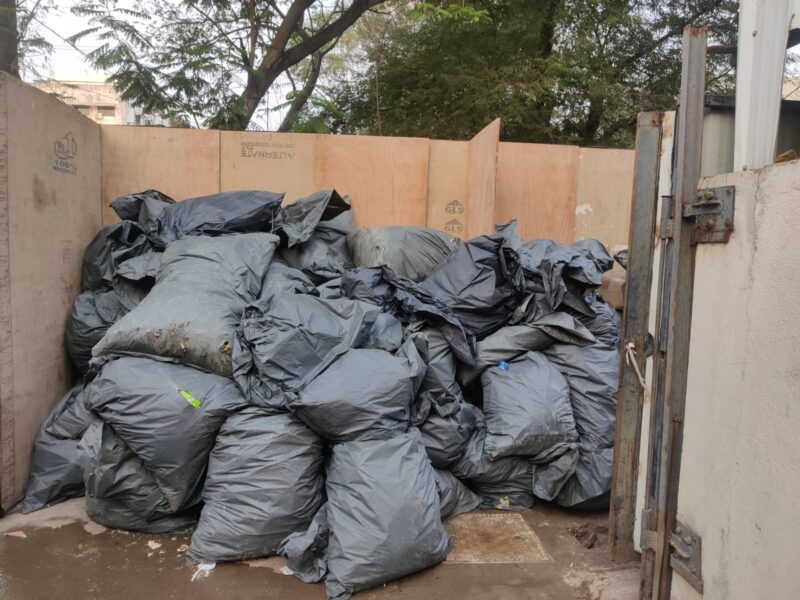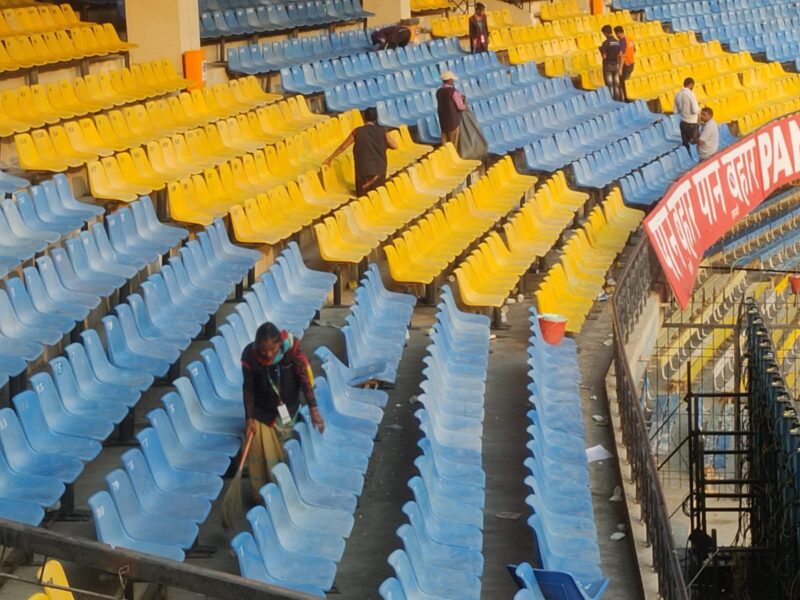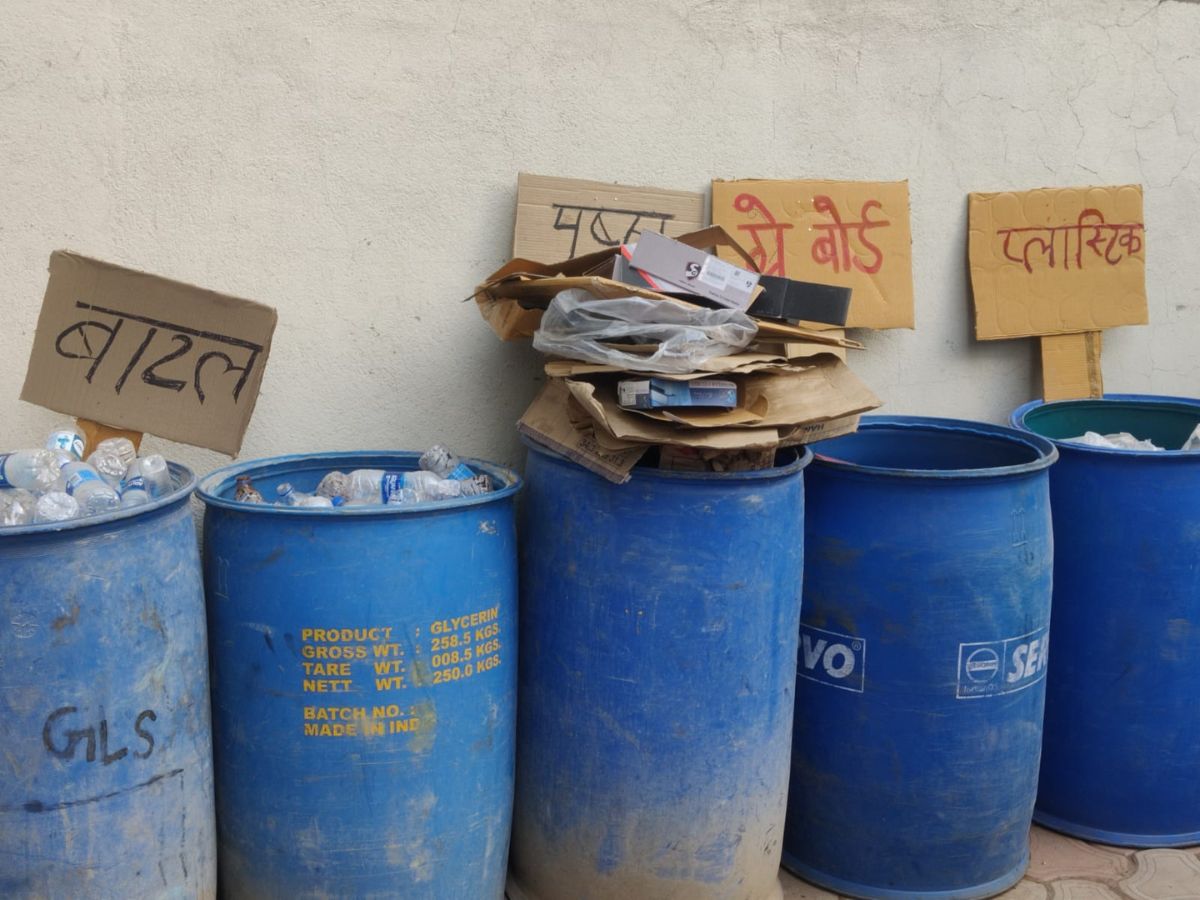After images of soiled spectators’ seats and trash lying in the open at the Arun Jaitley Stadium during the second Test in Delhi went viral on social media, the sight of sanitation workers sweeping and collecting garbage in the stands of the Holkar Stadium after the end of play over the two days here has been refreshing.
“The garbage is collected and sent for recycling,” says Rajiv Risodkar, a former Board of Control for Cricket in India (BCCI) umpire and currently serving as an official with the Madhya Pradesh Cricket Association (MPCA).
Inside the stadium, there is a big garbage collection centre. The garbage is sifted here and placed in different drums – there is one each for bottles, plastic, paper among others. The garbage that can’t be sifted is collected in large black bags and sent to a warehouse owned by the waste management company in charge of collection and disposal.

This goes in sync with Indore’s distinction as the cleanest city in India according to the government’s Swachh Survekshan survey. According to a report, it processes 1,900 tons of urban waste everyday.
“We also keep 400-500 seats in reserve for every day. Sometimes fans break seats but they are immediately replaced for the next day from the reserve seats,” added Risodkar, who has also translated MCC (Marylebone Cricket Club) laws (that govern the game of cricket) into Hindi.

One of the striking features of the Holkar Stadium, set in the hustle-bustle of the city, are the stands. Each one of them is named after a former cricketer. The east stand is reserved for the players from the famed Holkar team that lasted till 1954. That team backed by the ruling family of Indore (former Holkar state) competed in Ranji Trophy from 1941 to 1954 and reached finals 10 times, winning on four occasions.
The west stand is named after some of India’s former star players — Vijay Hazare, Sunil Gavaskar Sachin Tendulkar, Anil Kumble, Ajit Wadekar and Kapil Dev.
The pavilions at one end are named after Col CK Nayudu and Syed Mushtaq Ali, the great Holkar as well as India cricket teams’ stars.
The practice and nets too have been named after former players while the dressing rooms for the two teams have been named after current India coach and ex-captain Rahul Dravid and former India captain late MAK Pataudi. Dravid was born here and Pataudi is connected through his mother’s side to Bhopal which is the capital of Madhya Pradesh and is less than 200 kilometres from here.
Interestingly, the home team’s dressing room, in this case India’s, is named after Dravid.





